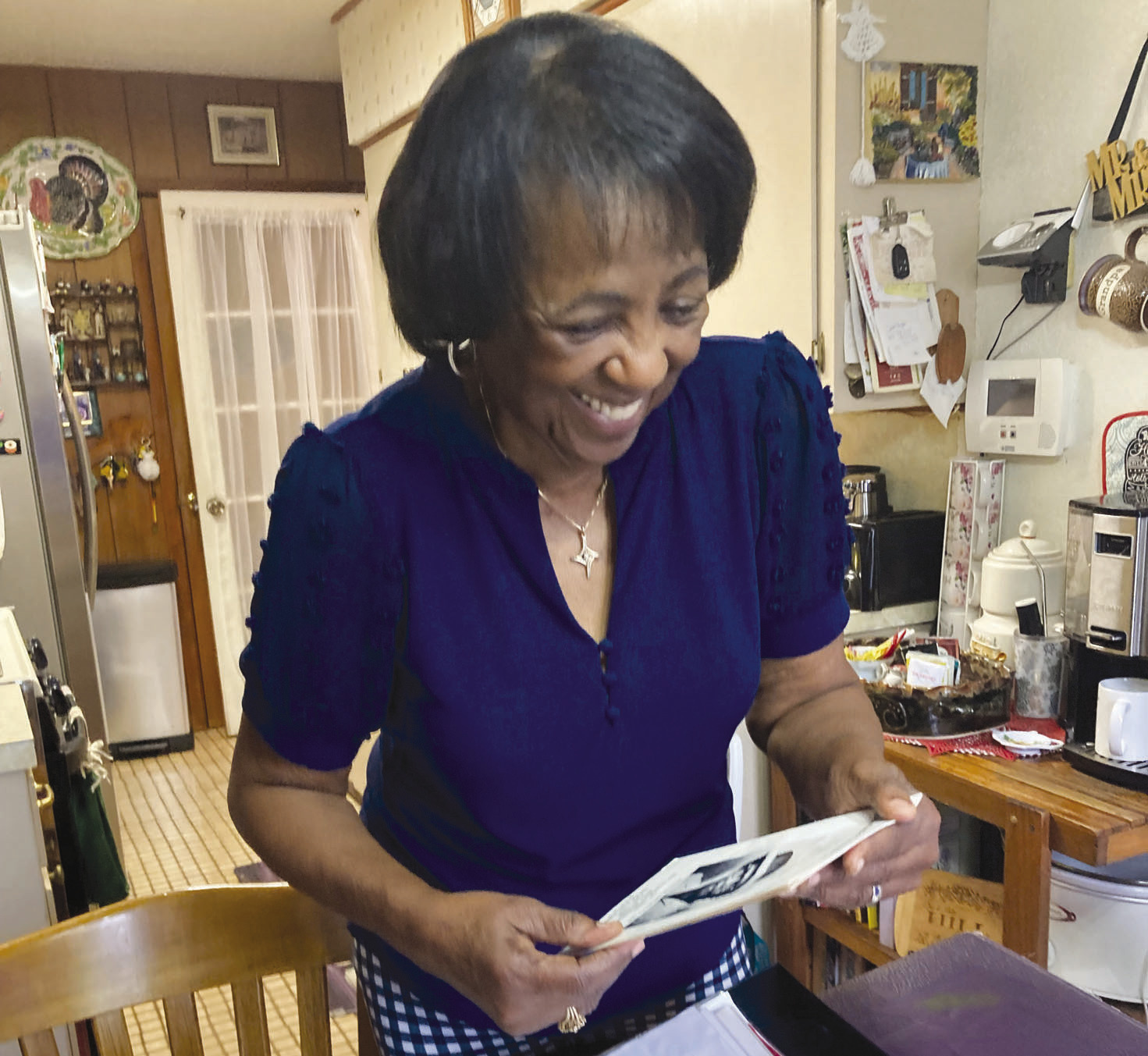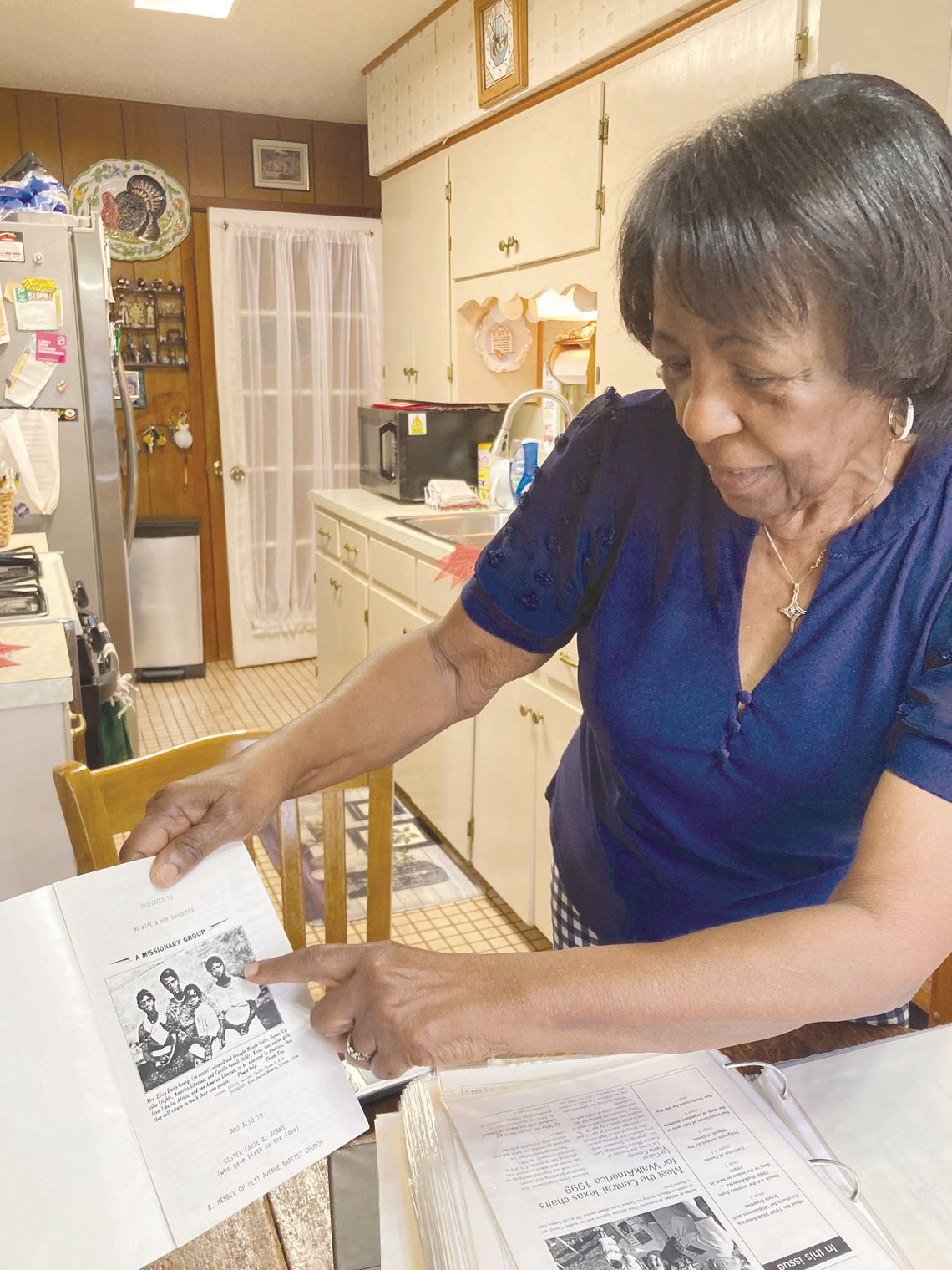Eliza Davis George: Texas’ first missionary to Liberia
As a young girl growing up during the 1940s and 50s in Taylor, Leslie Hill remembers how important it was whenever the late Eliza Davis George would visit and share her testimony at Zion Chapel Baptist Church.
“Whenever Mother George came to town, we had to go,” Hill said of Texas’ first missionary to Liberia, who spent more than six decades in the West African nation. “Every two years, there would always be a big gathering or a program for her, and she would speak. She just seemed like she was a happy lady all the time, and she always had stories to tell that would lift our spirits.”
Hill remembers George as a devout Christian woman who loved children and who always reminded her to listen to her mother, Otis Mae Washington, her close friend.
“When she spoke, she spoke with authority,” Hill said. “And whenever she spoke, it always had a Bible scripture at the beginning or the end.”
George was born Jan. 20, 1879, to former slaves, Litt and Jane Davis, in Bastrop County.
At the turn of the 20th century, George’s family moved to a home in Taylor near Zion Chapel, Hill confirmed.
By all accounts, George, who died March 8, 1979, at age 99, was an extraordinary learner and leader from her earliest days.
During a time of segregation and racial discrimination, George and her parents, who eked out a living as sharecroppers, managed to pay for her to attend Guadalupe College in Seguin.
After college, George pursued teacher training at Central Texas College in Waco, where she was eventually hired, and she served as a faculty member there for five years.
“For a black girl in the south at the turn of the 20th century, attending a teacher’s training college was remarkable,” wrote Lorry Lutz in her book, “When God Says Go: The Amazing Journey of a Slave’s Daughter.” “With slavery dead for only 35 years, few black children aspired even to a high school education. (And) southern whites scoffed at (African-Americans) who got an education instead of continuing to labor in the fields.”
But despite these early achievements, George said she felt a calling from God to go to Africa to share the Gospel Feb. 2, 1911, during a service at her college’s chapel.
“...Eliza’s heart was suddenly filled with an overwhelming desire to see her brothers and sisters in Africa,” Lutz wrote. “As clearly as if she were there, she saw Africans passing before the judgment seat of Christ weeping and moaning, ‘But no one ever told us, ‘You died for us.’’” However, George’s plan to go to Africa as a missionary was not initially embraced by those around her, according to an account by her son in law, the late Rev. O.S. Davis.
“Some college administrators opposed her desire, but knowing the woman, she persisted,” Davis wrote. “Many questions were asked of her, namely, ‘How will you get the funds to go?’ and ‘When you get there, who will support you?’ Many pastors and churches doubted her decision, (but) within her heart, Eliza said she could hear God saying, ‘I will be with you.’” With support from numerous area black churches and through the Foreign Missions Board of the General Baptist Convention of Texas, in December 1913, George set sail for Africa with several other missionaries on a voyage to Liverpool, England and then to Liberia, where they landed in January 1914, according to Davis.
For the next 60 years, with tenuous support from abroad that waxed and waned, especially during the Great Depression, George would set up multiple missions, churches and primary schools for thousands of impoverished children, including the Baptist Industrial Academy, the National Baptist Mission and the Elizabeth Native Interior Mission, according to Davis.
“Mother was especially burdened for the tribal children,” Lutz wrote. “Because their families were destitute, she never charged for tuition or food. Everything was supplied for the children through her own provision from God. Over and over they would marvel, ‘Everything Mother had was ours; everything we had was from Mother.’” In addition, George often went many miles by foot through roadless jungles to reach people who had not yet heard the Gospel, even into her later years, hiking “through the swamps, sometimes walking through water up to her chin or balancing on footbridges made of barkless poles worn slippery from use,” Lutz wrote.
During her time in Liberia, she met and married C. Thomas George, a black civil-engineer-turned-missionary from England, who died in 1939.
“He loved her work, and he would follow her wherever she went,” Hill said. “He was educated, and she said she could not believe it, because in America, white people at the time just did not believe in educating African-Americans or black people. But she said over there, they did.”
Over the decades, George adopted and/or educated at least eight children from Liberia whom she sent to the United States to study, wrote Davis, whose own wife, Cecelia, George adopted during the 1930s.
Hill said these Liberian children would often live with George’s sister, Jenny Bell McNeil, in Taylor.
“Jenny Bell stayed behind and took care of those kids that she left behind,” Hill said. “Whatever kids she felt like needed to get over here, if she could afford it, she did it.”
Corene Tanksley, Hill’s younger sister, also has memories of George coming to town to raise money for her missionary work—but not to be fussed over.
“I remember her telling mother she didn’t need her to cook for her, that she could cook for her own self,” said Tanksley with a laugh.
Hill said George, who was used to the limited rations in Liberia, was very thin and preferred beans to meat.
“She wasn’t accustomed to eating fried foods,” Hill said with a smile.
Though George’s life may have been filled with modest food and a shortage of material wealth, she was decorated with Knighthood by two Liberian presidents, based on many years of her service to the country. And for her part, Hill said it was an honor to have known her and to have had the opportunity to support the people of Liberia through her. “We would always raise money for her the night of the service, and we would give it to her to take back to Africa with her,” Hill said. “It felt great. We felt like we were helping people that could have been some of our relatives. That’s how I felt when I put my little nickels in; we were helping some of our relatives whom we didn’t know.”
Many pastors and churches doubted her decision, (but) within her heart, Eliza said she could hear God saying, ‘I will be with you.’”
– Rev. O.S. Davis







